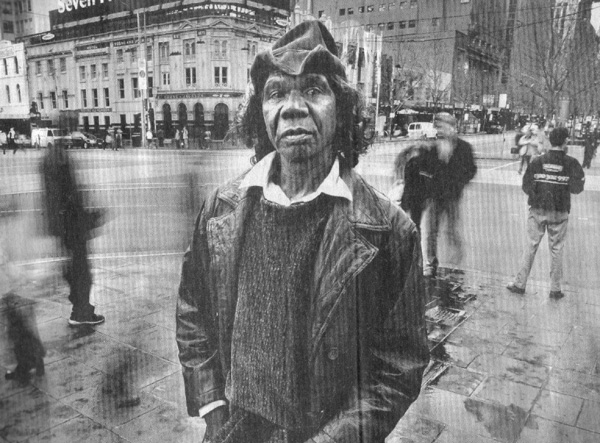WHEN David Gulpilil
starred in his first film, Walkabout, he was an 18-year-old from Arnhem
Land with no knowledge of city life and no firm grasp of the English
language. He spoke his native Yolngu language, but it was not translated
for the viewer.Today his son Jamie, also 18, is filming his debut
feature. Called Ten Canoes, it is the first film to be shot entirely in an
indigenous language, Ganalbingu.
Things have changed a lot in the 34 years between the film debuts of
the two generations. "I was showing my skill for the first time, showing
hunting activities I had grown up with," Gulpilil said. "Jamie comes on
location all the time, he's used to it."
Gulpilil was far from used to it when Walkabout became an international
hit, catapulting him on to the red carpet in London, Cannes and Los
Angeles. He dined with the British royal family and partied with John
Lennon. But it was the filming of Nicolas Roeg's 1971 classic that he
enjoyed the most.
And it is that film more than any he has done since -- including Rabbit
Proof Fence, Crocodile Dundee and Storm Boy -- that ranks as his
favourite.
Gulpilil was in Melbourne last night for the premiere of a
reinterpretation of Walkabout by Melbourne director Richard Frankland. The
multimedia show features live actors, their performance spliced with
images from the original film and interviews with people including
Gulpilil.
Frankland was only 12 when he saw Walkabout. It was the first time he
had seen someone with his own coloured skin on film, and he was "blown
away".
Now 42, he has a more complex view of the film, and is troubled by the
lack of "backstory" given to Gulpilil's character.
His production is an attempt to "fill in the gaps" by giving Gulpilil's
character a family and responsibilities beyond guiding the two white
children to safety.
"I'm giving the Gulpilil character a voice and accentuating his
cultural journey," he said.
Much was made about the sexual tension between Gulpilil's character and
that of his white teenage charge, played by Jenny Agutter, at the time of
the film's release, such a liaison being more explosive in the early 1970s
than it would be now.
| Gulpilil said yesterday it was not a big deal, and that the
much-talked-about tension had no grounding in reality. "It was just a
natural sort of thing," he said. |

